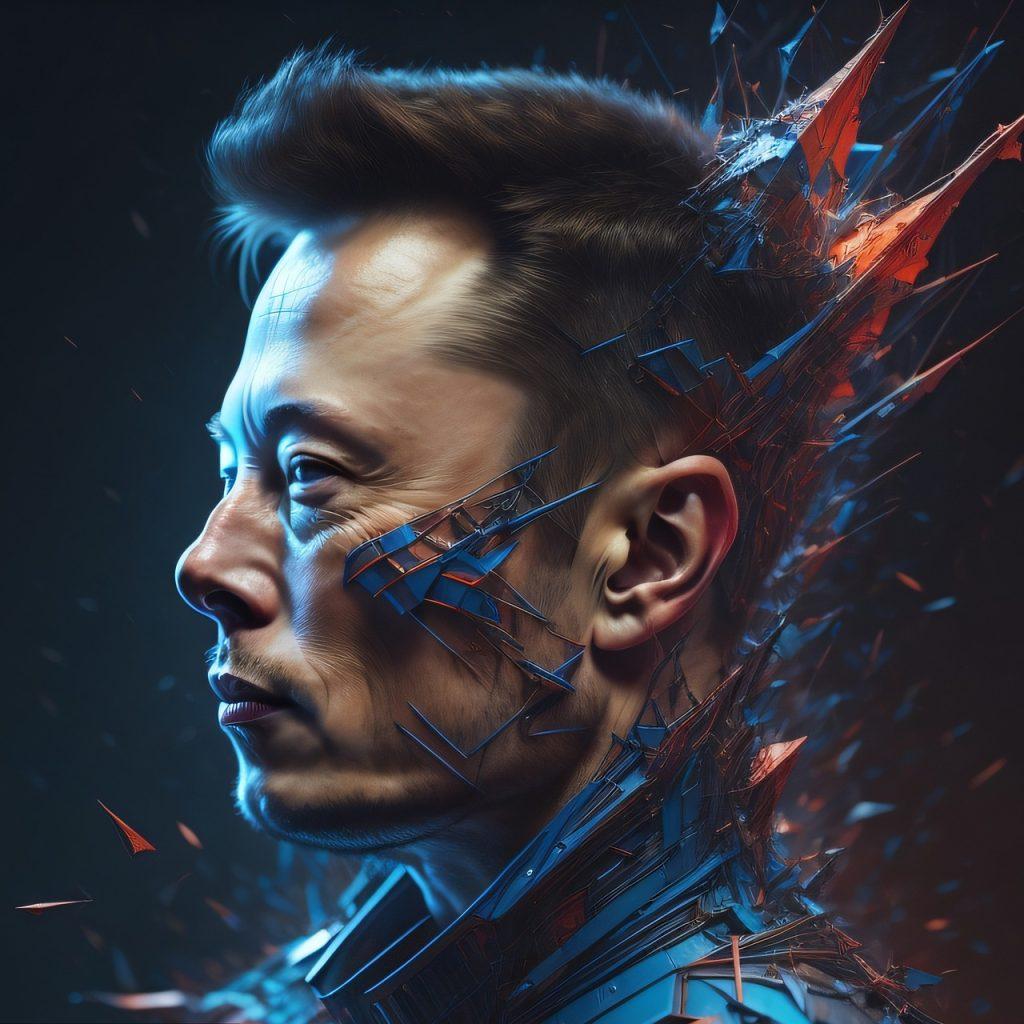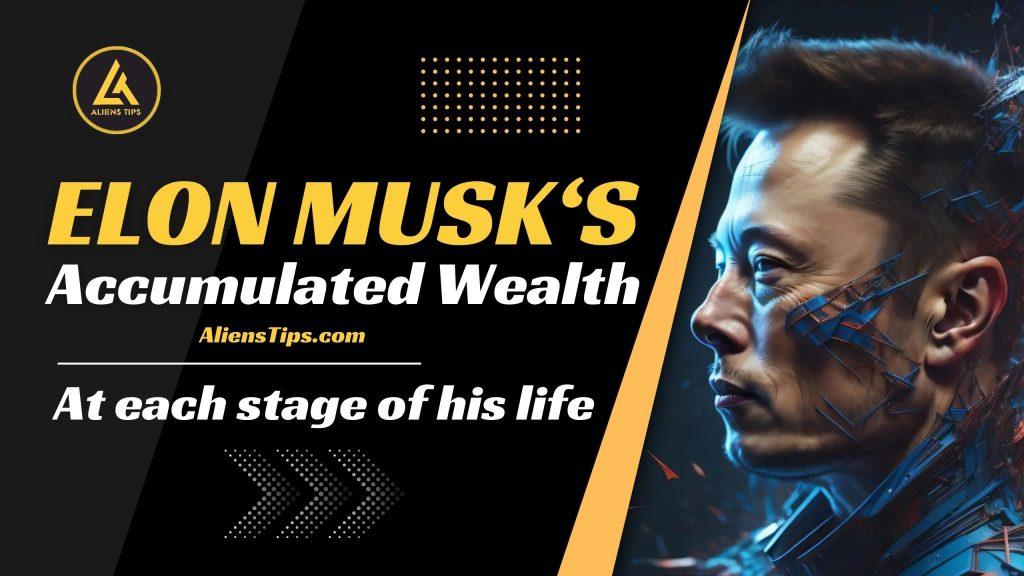Table of Contents
Elon Musk: University Education is Not as Important as Your Skills
Elon Musk Wealth, the billionaire entrepreneur and CEO of companies like SpaceX and Tesla, has famously stated that a university degree is not a prerequisite for success in the tech industry. Musk himself holds degrees in physics and economics from the University of Pennsylvania, but he believes that skills and abilities are more important than formal education credentials.
Musk has emphasized the value of hands-on experience, problem-solving skills, and a willingness to learn. He has hired individuals based on their demonstrated abilities and contributions, rather than their educational background alone. This mindset reflects Musk’s belief in the importance of practical knowledge and continuous self-improvement.

Why Elon Musk is Considered One of the Most Important Tech Figures
Elon Musk’s influence and impact in the technology industry are significant for several reasons: Elon Musk Wealth
1. Visionary Leadership
Musk is renowned for his visionary leadership and ambitious goals. He has spearheaded groundbreaking projects in space exploration, electric vehicles, renewable energy, and more. Musk’s ability to articulate bold visions and inspire others to pursue them has earned him widespread recognition and admiration.
2. Disruptive Innovation
Through companies like SpaceX and Tesla, Musk has disrupted traditional industries and pushed the boundaries of what is possible. SpaceX has revolutionized space transportation with its reusable rocket technology, while Tesla has led the transition to electric vehicles and sustainable energy solutions. Musk’s commitment to innovation has reshaped entire sectors and sparked competition and innovation worldwide.
3. Multidisciplinary Approach
Musk’s diverse background in physics, economics, and entrepreneurship has enabled him to tackle complex problems from multiple angles. He brings together expertise from various disciplines to develop innovative solutions to pressing challenges. Musk’s interdisciplinary approach has been instrumental in driving progress in areas like space exploration, transportation, and renewable energy.
4. Global Impact
Musk’s ventures have a global impact, influencing industries, economies, and societies around the world. SpaceX’s achievements in space exploration have inspired a new era of space travel and fueled scientific discovery. Tesla’s electric vehicles have accelerated the transition to sustainable transportation and reduced reliance on fossil fuels. Musk’s initiatives have the potential to address pressing global issues, such as climate change and space exploration.
5. Iconic Status
Elon Musk has achieved iconic status as a visionary entrepreneur and innovator. He is widely regarded as one of the most influential figures in the tech industry and beyond. Musk’s larger-than-life persona, bold predictions, and unconventional approach to problem-solving have captured the public’s imagination and made him a cultural icon.
Elon Musk Wealth Accumulation Throughout Elon Musk’s Life
Elon Musk wealth has fluctuated significantly throughout his life, reflecting the success of his ventures and the volatility of financial markets. Musk’s wealth accumulation milestones include:
Early Ventures and PayPal
After selling his first company, Zip2, Musk received a significant payout. His subsequent ventures, including PayPal, further increased his wealth. PayPal’s sale to eBay in 2002 for $1.5 billion contributed substantially to Musk’s financial success.
SpaceX and Tesla
Musk’s founding of SpaceX and Tesla propelled his wealth to new heights. SpaceX’s achievements in space exploration and Tesla’s success in electric vehicle manufacturing have made Musk one of the wealthiest individuals in the world. Musk’s ownership stakes in these companies, combined with their market valuation, have contributed significantly to his net worth.
Stock Market Fluctuations
Musk’s wealth is closely tied to the performance of his companies’ stocks, which can fluctuate based on market conditions, industry trends, and company developments. Musk’s net worth has risen and fallen along with the stock prices of SpaceX and Tesla, reflecting the volatile nature of the tech industry and financial markets.
Philanthropy and Investments
Musk has pledged to donate the majority of his wealth to charitable causes through initiatives like The Giving Pledge. Additionally, Musk has made strategic investments in various ventures, further diversifying his financial portfolio and influencing his net worth over time.
Elon Musk’s Accumulated Wealth at Different Stages of His Life
Elon Musk in His Twenties: Early Ventures and Entrepreneurial Success
During his twenties, Elon Musk founded Zip2, an online city guide software for newspapers, which was sold for $307 million in 1999. He then co-founded X.com, an online payment company, which later became PayPal and was acquired by eBay for $1.5 billion in stock.
Elon Musk in His Thirties: SpaceX, Tesla, and SolarCity
In his thirties, Musk invested $100 million to found SpaceX in 2002, with the goal of reducing space transportation costs and enabling the colonization of Mars. Additionally, he co-founded Tesla Motors in 2004, which aimed to accelerate the world’s transition to sustainable energy. Musk also played a key role in SolarCity, a solar energy services company founded by his cousins.
Elon Musk in His Forties: Further Expansion and Innovation
During his forties, Musk continued to expand his ventures and innovate in various industries. SpaceX achieved several milestones, including the successful launch and recovery of reusable rockets, while Tesla became a major player in the electric vehicle market with the release of models like the Model S, Model X, and Model 3.
Elon Musk in His Fifties: Ambitious Projects and Wealth Growth
As Musk entered his fifties, his wealth grew significantly due to the success of his companies. SpaceX secured contracts with NASA and commercial clients for satellite launches, while Tesla surpassed traditional automakers in market valuation. Musk also focused on ambitious projects like Neuralink, a neurotechnology company developing implantable brain–machine interfaces.
Elon Musk in His Sixties: Continued Innovation and Global Impact
In his sixties, Elon Musk’s influence and wealth continued to grow as he pursued new initiatives to address pressing global challenges. SpaceX launched the Starlink satellite constellation to provide global internet coverage, while Tesla expanded its lineup of electric vehicles and invested in battery technology to enable renewable energy storage at scale.
Elon Musk in His Seventies and Beyond: Legacy and Philanthropy
Looking ahead, Elon Musk’s impact on technology, transportation, and space exploration is expected to endure for decades to come. As he transitions into his seventies and beyond, Musk may focus more on philanthropy and legacy-building initiatives aimed at addressing societal issues and ensuring a sustainable future for humanity.
Overall Net Worth
The 2020s have been incredibly lucrative for Musk so far. His net worth has continued to rise astronomically thanks to Tesla’s unrelenting growth. In 2020 alone, his wealth increased by $142 billion. Tesla’s share price surged to more than $400 in late 2021, making Musk the richest person in the world. In November 2021, his fortune peaked at $320 billion. In December 2022, a dip in Tesla’s share price brought his net worth back down a bit.
As of 2024, Musk’s net worth is estimated at $232 billion
Importance of University Degrees According to Elon Musk
Elon Musk, the renowned entrepreneur, challenges the conventional belief that a university degree is essential for success. While formal education has its merits, Musk emphasizes the importance of skills and capabilities over academic credentials. He encourages individuals to focus on acquiring practical knowledge, problem-solving abilities, and a willingness to learn, regardless of their educational background.
Message to the Youth: Relax
In a 2014 interview, Elon Musk delivered a message to aspiring individuals and employers alike: “Relax.” Musk highlighted the importance of assessing individuals based on their capabilities rather than their degrees. He cited examples of successful tech figures like Bill Gates, Larry Ellison, and Steve Jobs, who achieved remarkable success despite not graduating from prestigious universities.
Hiring Based on Abilities
Musk advocates for hiring individuals based on their demonstrated abilities and contributions rather than their educational qualifications alone. He believes that a person’s skills and accomplishments are better indicators of their potential than their academic credentials. Musk’s hiring practices reflect his emphasis on practical knowledge and real-world capabilities.
Thriving in the Job Market Without a College Degree
Elon Musk’s perspective challenges the notion that a college degree is necessary for career success. He encourages individuals to focus on developing relevant skills, gaining practical experience, and continuously learning. Musk’s advice highlights the importance of self-directed learning, online resources, and real-world application of knowledge in navigating the job market without a traditional university degree.
Navail Ravikant’s Advice
Naval Ravikant, co-founder of AngelList, offers practical advice for individuals seeking to advance their careers without traditional degrees:
- Focus on what you need to learn and how to learn it effectively, rather than where or for how long you study.
- Utilize online resources to access the best teachers, books, and experts in your field.
- Cultivate a genuine desire for learning, as motivation is crucial for sustained personal and professional growth.
The Value of Practical Knowledge
While a university degree may hold financial value, Elon Musk and others emphasize that the true value lies in the knowledge and skills acquired through education. The ability to apply theoretical knowledge in practical settings and solve real-world problems is essential for success in both professional and personal endeavors. Therefore, the emphasis should be on acquiring actionable knowledge and applying it effectively in one’s life and career.
Elon Musk: Shaping the Future of Humanity
Renowned astrophysicist Neil deGrasse Tyson considers Elon Musk to be one of the most influential figures in shaping the future of humanity. While acknowledging the significant contributions of tech giants like Steve Jobs and Bill Gates, Tyson emphasizes Musk’s unique approach to innovation and his vision for advancing civilization.
Musk’s Visionary Approach
Elon Musk’s impact transcends mere technological innovation; he envisions a future where humanity extends beyond Earth’s confines. Musk’s ambitious endeavors, such as developing electric cars and plans for Mars colonization by 2024, demonstrate his commitment to revolutionizing transportation and exploring space.
Building a Multiplanetary Society
Neil deGrasse Tyson believes that Musk’s efforts to establish a human presence on Mars will have profound implications for civilization. By colonizing Mars, Musk aims to mitigate concerns about resource scarcity on Earth and harness the abundant resources available in space.
Unlimited Resources in Space
According to Tyson, space offers virtually unlimited resources, eliminating the need for conflicts over finite terrestrial resources. Musk’s vision involves leveraging space exploration to access new resources and sustainably meet humanity’s needs without depleting Earth’s finite reserves.
Musk’s Mission to Solve Earth’s Challenges
Elon Musk’s pursuit of space exploration is driven by his desire to address pressing challenges on Earth. By tapping into space resources, Musk aims to alleviate resource scarcity, environmental degradation, and geopolitical tensions, thereby contributing to a more sustainable future for humanity.
Musk’s Influence on Future Generations
Neil deGrasse Tyson contends that Elon Musk’s efforts to advance space exploration and establish a multiplanetary society will leave a lasting legacy for future generations. Musk’s visionary leadership and innovative solutions have the potential to shape the trajectory of human civilization for centuries to come.
